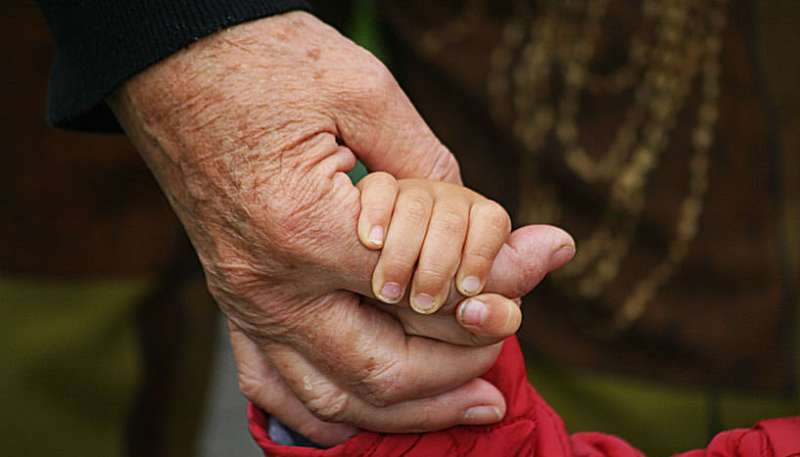Households including in-laws have fewer kids

Women who live with their own mother or their mother-in-law in the same household have, on average, fewer children than women who only live with their spouse. Martin Fieder and colleagues, evolutionary anthropologists from the University of Vienna, report this on the basis of intercultural data of 2.5 million women worldwide. The study appears in the renowned scientific journal Royal Society Open Science.
Until now, evolutionary biologists have assumed that the presence of a woman's mother or her mother-in-law in the household increases the woman's number of children and, thus, the grandmother's number of grandchildren. Furthermore, it was assumed that women frequently move to the families and households of their husbands.
By analyzing the records of more than 2.5 million women from 14 countries worldwide, Martin Fieder and his colleagues from the Department of Anthropology of the University of Vienna found that in most cases, women do not live with either their own or their mother-in-law in the same household, and if they do, they have on average fewer children compared to women who only live with their spouse.
The authors propose two reasons explaining their results: reproductive competition and competition on resources with their daughters. The latter is particularly plausible as the analyses included many developing countries. But reproductive competition is also reasonable, as a mother/mother-in-law in the household is particularly negatively associated with a woman's number of children if still in her reproductive years: A younger grandmother may have children of her own, which is biologically more important than raising her grandchildren—hence, they are competing across generations.
More information: Susanne Huber et al. Living with own or husband's mother in the household is associated with lower number of children: a cross-cultural analysis, Royal Society Open Science (2017). DOI: 10.1098/rsos.170544



















